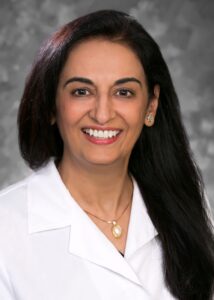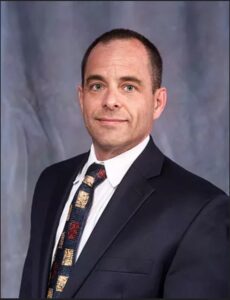Vinita Sodhi, MD and Robert DeSimone, MD, Provide Guidance on Becoming Board-Certified in Anesthesiology
The Board of Certification in Anesthesiology (BCA) offers credentialed physicians board certification in the specialty. The BCA is a Member Board of the American Board of Physician Specialties® (ABPS), which is recognized in the U.S. Department of Labor’s Occupational Outlook Handbook and by the Centers for Medicare and Medicaid Services (CMS) as a top choice for physician certification.
If you’re a qualified and experienced anesthesiologist, considering board certification, BCA Diplomates Vinita Sodhi, MD, and Robert DeSimone, MD, can tell you about the certification process and the benefits of becoming certified through the ABPS—a multispecialty board that works diligently on their behalf to ensure they have a strong voice in their community.
Vinita Sodhi, MD
 I practice anesthesiology at Atlanticare Regional Medical Center in Pomona, NJ. Anesthesiology is a dynamic specialty with an excellent combination of technical hands-on skills and intellectual problem-solving in real time. I love having the ability to provide anesthetic care to each patient based on their co-morbidities and surgical procedure.
I practice anesthesiology at Atlanticare Regional Medical Center in Pomona, NJ. Anesthesiology is a dynamic specialty with an excellent combination of technical hands-on skills and intellectual problem-solving in real time. I love having the ability to provide anesthetic care to each patient based on their co-morbidities and surgical procedure.
To be eligible for BCA certification, applicants must satisfy the general requirements of the ABPS as well as the BCA’s requirements, which include completing a PGY-1 program or accredited internship and an ACGME- or AOA-accredited residency in anesthesiology. To earn certification, candidates must pass both a written and an oral exam.
Preparation for the exams starts during training and through involvement in complex cases. Additional resources I used to prepare include: the ACE book questions, Open Anesthesia, and Faust Anesthesia Handbook.
Becoming BCA certified has several benefits. It puts you in a distinguished group of specialists who have demonstrated exceptional knowledge and skills. BCA certification also enhances your technique and patient care methods, giving you confidence in your clinical decision-making and treatment planning. As a result, patients feel more confident.
Though the certification process is challenging, it is worthwhile and rewarding. Stay focused and keep solving as many practice questions from different sources. For oral exam preparation, do as many mock orals as you can, and ask your friends or colleagues to be your mock examiner.
Robert DeSimone, MD
 I’m currently practicing with a small anesthesia group that covers surgical centers in Essex, Morris, and Union counties in New Jersey.
I’m currently practicing with a small anesthesia group that covers surgical centers in Essex, Morris, and Union counties in New Jersey.
One important way to prepare for the BCA written certification exam is to read one of the major anesthesia textbooks over your first year of anesthesia training. Also, look over the salient points of the cases you are assigned to every day and discuss them with your attending physicians.
Once you pass the written portion, prepare for the oral exam by rereading one of the major anesthesia textbooks and having a mentor administer practice questions. Oral exam review courses are another option.
In the past, being board certified in a specialty was not imperative, but in today’s medical environment, certification is very imperative. For instance, most hospitals require physician specialists to earn board certification in a certain period of time to maintain hospital privileges. When you consider that most insurers will not cover medical services unless a physician is board certified or board eligible, you can understand why most ambulatory surgical centers advertise that their physicians are certified.
If I could give advice to an anesthesiologist interested in BCA certification, I would say that becoming a certified physician is a rigorous endeavor, certainly, but it is now essentially required in order to practice anesthesia in today’s evolving industry.






